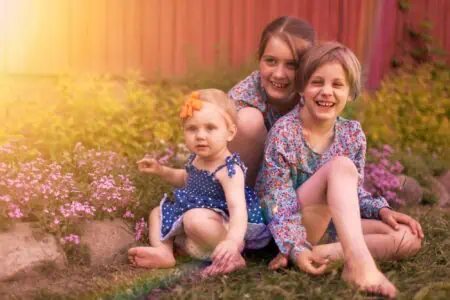Are you writing a novel or crafting an original character but can’t find the perfect surname? This list is fit for you. We’ve searched near and far for the most fascinating last names that start with F.
Our extensive and curated list is filled with gems from around the world. From Fujiwara to Florence, these family names will breathe life into your creations by giving them culture, history, and personality.
So whip out your pen and be the first to discover the best last names starting with F.
18 Exotic Last Names Starting With F
Fuel your creativity with these exotic last names that start with F.
- Fadel – from the Arabic given name Fadil, meaning “generous,” “honorable,” and “virtuous.”
- Fahmy – is most common surname in Egypt and Saudi Arabia and comes from Fahmi, Arabic for “my understanding.”
- Fan – from Chinese for “bee,” written in Vietnam as Pham (范) and in Korea as Beom (范, 범).
- Fang – is Chinese and can be written as Fāng (square/four-sided), Fāng (fragrant), or Fáng (room).
- Fayad – from the Arabic root “fayyāḍ,” meaning “very generous” or “overflowing (with generosity).”
- Fazil – from the Arabic Fadl, meaning “grace” or “generosity.”
- Fei – a Chinese surname denoting the ancient state of Fei, common in China, Taiwan, and Thailand.
- Feng – can refer to the Chinese Fēng (wind), the more common Féng (gallop), or Fèng (phoenix).
- Fu – a Chinese surname of uncertain meaning, but may mean “blessing” or “good fortune/luck.”
- Fujimori – a fairly common Japanese surname meaning “wisteria forest” or less often “heap/pile” or “protection.”
- Fujimoto – a popular Japanese surname meaning “(dweller) under the wisteria,” possibly from the Fujiwara clan.
- Fujioka – is Japanese for “wisteria hill/ridge” and is the 9,620th most common surname worldwide.
- Fujiwara – a highly common Japanese surname meaning “wisteria field,” often associated with a Heian-period clan.
- Fukuda – is Japanese, meaning “happy rice field/paddy” or “blessed rice field/paddy,” among others.
- Fukuhara – or Fukuwara, is Japanese for “lucky field” or “field of blessings.”
- Fukui – a Japanese surname that can mean “fortunate” or denote someone “from Fukui (prefecture).”
- Fukushima – a common Japanese surname and place name meaning “happy/blessed/lucky island.”
- Funai – is a fairly uncommon surname meaning “boat” or “well.”
110 Fancy Surnames Starting With F
Find your fantasy with these beautiful surnames starting with F.
- Faas – from the German word “vos,” meaning “fox,” and a Dutch diminutive of Bonifaas or Servaas.
- Fabbri – a popular 6-letter surname from the Italian “fabbro” meaning “blacksmith,” or more broadly, “craftsman.”
- Fabbro – a less common variant of the Italian Fabbri, meaning “blacksmith” or “craftsman.”
- Fabel – a diminutive of Fabian (bean) or from the German “fabel” (fable), a nickname for a storyteller.
- Fabela – of uncertain meaning, but most popular in Mexico, with 16,089 bearers worldwide.
- Faber – is Latin for “smith/craftsman,” common in Germany, including English and Dutch-speaking territories.
- Fabian – from the Latin “faba,” meaning “(broad) bean,” most common in Tanzania and Mexico.
- Fabiani – an Italian patronymic (from a father’s name) or the plural form of Fabiano, from Fabian (bean).
- Fabiano – an Italian surname from a given name and a derivative of Fabian meaning “bean.”
- Fabio – the Italian and Spanish form of Fabius (bean), most common in Italy and Brazil.
- Fabish – is an Americanization of the Polish-German Fabiś/Fabisch and a Jewish variant of Fayvish (living).
- Fabozzi – is a fairly uncommon Italian patronymic or plural form of Fabo, meaning “bean.”
- Fabre – is an Occitan French surname, also spelled Fabré, from the Latin “faber” (smith/craftsman).
- Fabregas – is a Catalan surname from the place name Fàbregues, the plural form of Fàbrega (forge).
- Fabri – an Italian form of the Latin “faber” (blacksmith/craftsman/artisan), most common in Brazil and Italy.
- Fabricius – the original Latin form of Fabrice and the French form of Fabricius, meaning “smith, craftsman.”
- Fabris – an Italian patronymic (from the father’s name) from Fabro (smith/craftsman), common in Italy.
- Fabrizi – an Italian patronymic or plural form of Fabrizio, from Latin “faber” (blacksmith/craftsman).
- Fabrizio – is Italian, from the Latin word “faber” (smith/craftsman), with 10,956 bearers worldwide.
- Fabro – from the Latin word for an “ironworker,” meaning “smith, craftsman,” popular in the Philippines.
- Fabry – also spelled Fábry, meaning “blacksmith,” most common in France and Germany.
- Facchini – is southern Italian from “facchino” (porter/goods carrier), previously meaning “scribe, clerk.”
- Facciolo – from Fac(c)io, a diminutive of the Italian and Spanish Bonifacio, meaning “good fate.”
- Facio – an Americanization of the Italian Fazio, possibly meaning “face” or from the Latin for “honorable, virtuous.”
- Faeth – a 5-letter surname from the Old High German “foid,” meaning wolf” or “prey.”
- Fafard – a French theatrical surname from the root “fard,” meaning “made up” or “make-up.”
- Faherty – an Anglicization of the Irish Gaelic Ó Fathartaigh (son of Fathartach/Faghartach) meaning “noisy” or “wise.”
- Fahey – an Anglicization of the Irish Gaelic Ó Fathaidh or Ó Fathaigh, from “fothadh” (base/foundation).
- Fahner – from the Middle High German “vaner” (flag bearer), most common in the Netherlands and Germany.
- Fahnestock – an Anglicized variant of the rare German surname Fahrenstück, meaning “flag pole.”
- Fahr – from the Middle High German “vare,” meaning “ferry,” denoting someone living near a river crossing.
- Fahringer – for someone from Fahring (German) or from the Middle Low German “verdinc” (quarter weight/farthing).
- Fahrner – a German-Swiss variant of Farner, or from “vār” (furrow/border trail), for dwelling by a thoroughfare.
- Fahrni – is Swiss-German from “varn,” denoting a “(dweller near) ferns,” commonly used in Switzerland.
- Faia – a 4-letter southern Italian nickname, first name, and surname from “faglia,” meaning “beech fruit.”
- Faiella – from an Italian nickname for a lively person, derived from the Latin “favilla” meaning “spark.”
- Fairbairn – of Scottish and Middle English origin, meaning “handsome/beautiful child.”
- Fairbanks – associated with the Alaskan city, stemming from Middle English place names meaning “beautiful bank.”
- Fairchild – from a Middle English given name meaning “fair/beautiful child.”
- Fairclough – from Middle English locations pairing “fair(e)” (beautiful) and “clo(u)gh” (narrow valley/ravine/cliff).
- Fairfax – from a medieval English nickname meaning “fair hair.”
- Fairfield – an English habitational name from various locations meaning “beautiful open country/field” or “hog field.”
- Fairhurst – an Anglo-Norman habitational surname, likely refers to a hamlet in Lancashire, meaning “beautiful wooded hill.”
- Fairweather – from an English and Scottish nickname meaning “fair/beautiful weather,” for a cheerful/sunny person.
- Falkner – is English/German, from the German “valke” (falcon), for someone resembling a falcon/falconer.
- Fallows – a patronymic from the English Fallow, denoting a dweller on uncultivated or recently cultivated land.
- Fane – from a medieval English nickname for a “well-disposed” person or medieval Welsh for a “slim” person.
- Farias – is Portuguese from various places called Faria and southern Italian, meaning “beacon, lighthouse.”
- Farkas – a Hungarian given name and surname meaning “wolf,” written as Farkaš in Czech and Slovak.
- Farnsworth – combines the Old English “fearn” (fern/bracken) and “worth” (a settlement).
- Farquharson – is Irish and Scottish, meaning “son of Farquhar,” an Anglicization of Fearchar/Ferchar (man friend).
- Farrier – is Scottish/English from the Old French “ferrier” (blacksmith/ironworker), initially from the Latin “ferrum” (iron).
- Farrington – an English habitational name from the Old English “fearn” (fern) and “tūn” (settlement/town).
- Faulkner – is English, Scottish, and German for a “falconer.”
- Favela – a Spanish surname from Latin American meaning “(broad) bean” or “shantytown” (originally “bean patch/plot”).
- Fawley – is likely from the Old English for “plowed land meadow” or “fugelere” (fowler/bird-catcher).
- Featherstone – from the Old English “feðerstan” (tetralith/prehistoric four-stone structure), popular in England and the U.S.
- Featherstonhaugh – also spelled Featherstonehaugh, denoting someone from Featherstonhaugh, Northumberland; is Old English for “feather stone corner.”
- Feehan – from the Irish Ó Fíodhna, and the Gaelic “fiodhnach” (woodlander/ranger), and “fiodhna” (tender/gentlemanly/warrior).
- Fenlon – is an Anglicization of the Gaelic Ó Fionnaláin, from a diminutive of “fionn” (fair/white).
- Fenton – is English and Scottish, from a location meaning “fen/marsh town” in Old English.
- Ferguson – from the Scottish Gaelic Macfhearghus and Irish for “son of Fergus” (angry one/supreme man).
- Ferrara – a variation of the Italian Ferreira, meaning “(dweller near a) forge/iron workings.”
- Ferrero – an Italian and Spanish surname meaning “(iron) smith,” associated with Italy’s wealthy Ferrero family.
- Fielding – is Anglo-Saxon from the Old English “felding” (dweller in open country).
- Finch – an English nickname for a small, lively person from the Middle English, “finch/fink” (finch).
- Fincher – is Anglo-Norman from the Old English “finc” (finch), for a finch catcher or fancier.
- Finley – an Anglicization of Scottish MacFhionnlaigh, from Gaelic Fionnlagh, combining “fionn” (white/fair) and “laoch” (hero).
- Finnegan – Anglicized from Irish Ó Fionnagáin, meaning “son of Fionnagáin,” a diminutive of Fionn (fair-haired).
- Finney – from the Irish-Gaelic O’ Fiannaidh, meaning “son of Fianna” (deer), and Icelandic, meaning “Lapp/Finn island.”
- Fiore – is a sweet 5-letter surname meaning “flower” in Italian, likely from the Latin Flora and Florus.
- Firth – is English-Scottish for “woodland/shrubland/hunting ground” and Welsh for “mountain pasture” or “barren land.”
- Fitzgerald – an Irish patronymic of Norman origin, combining Fitz (son of) and the given name Gerald.
- Fitzgibbon – is Irish from Anglo-Norman roots, pairing Fitz (son of) and Gibbon from Gilbert (bright pledge).
- Fitzmaurice – is Anglo-Norman for “son of Maurice,” from the Latin Maurus meaning “North African, Moorish.”
- Fitzpatrick – an Irish and Anglo-Norman patronymic meaning “son of Patrick,” meaning “nobleman.”
- FitzRoy – an Anglo-Norman patronymic and an English aristocratic house, meaning “son of the king.”
- Fitzsimons – is Irish from Anglo-Norman, meaning “son of Simon,” which means “to hear, listening.”
- Fleming – an English surname for a “Fleming” (someone from Flanders in the Netherlands).
- Fletcher – from the Old French “fleche” (arrow), denoting someone who was a “fletcher, arrow-maker.”
- Flint – from the English-German “flint,” for someone living near an outcrop of flint or a hardy person.
- Flowers – a variant of the English Flower, denoting a blossoming plant, from the Latin “flos.”
- Fogel – also spelled Fogle, from the Old High German Vogel and Old Dutch “fogal,” meaning “bird.”
- Foley – from the Irish Ó Foghladha (descendant of Foghlaidh), a given name meaning “pirate, plunderer, marauder.”
- Foltz – from the German Volz or Foltz, derived from “folt” or “felz,” meaning “tawny, tanned.”
- Fontaine – an 8-letter French surname meaning “fountain” or “spring” from the Old French “fontane.”
- Forbes – from the Gaelic “forbais,” meaning “(at the) field, land,” associated with Forbes magazine.
- Ford – from the Old English “ford” (river crossing), associated with the billionaire automakers.
- Forde – an Irish variant of the English Ford, common in Ireland, meaning “(dweller by) a ford.”
- Foreman – from Old English for “pig/hog man” (swine keeper), or Middle English “foreman” (leader/spokesman).
- Forsythe – also spelled Forsyth, from the Scottish Gaelic Fearsithe (man of peace).
- Fortescue – comes from the Anglo-Norman elements “fort” and “escu,” meaning “strong shield.”
- Fortin – originating as a classy Old French nickname from “fort,” meaning “strong/brave.”
- Fortune – is Middle English from the Latin “fortuna” (fortune/luck) or from the Anglo-Norman “fortin” (strong).
- Fotheringham – a distinguished-sounding Scottish surname denoting “a house supplying food.”
- Fountain – denotes a dweller near a spring or well, from the Middle English-Old French “fontayne, fontaine” (fountain).
- Fournier – from the French and Walloon “fourneau,” meaning “oven,” denoting a baker.
- Fowler – from the Old English “fugol” (bird) and Middle English “fogheler, fugheler,” meaning “fowler, birdcatcher.”
- Francis – from several languages, meaning “Frenchman,” “Frank (a Germanic tribe),” or “free man.”
- Frankel – from the Middle High German Fränkel, meaning “free man.”
- Franklin – is Anglo-Saxon for “the freeholder,” from Middle English “frankelin,” meaning “freeman.”
- Frazier – a variant of the Scottish Fraser/Frasier (of the forest men) and French Fraiser (strawberry).
- French – an Anglicization of the Norman (French) Defreine, meaning “ash tree.”
- Friel – from the Irish Ó Frighil (son of Fearghal), a given name meaning “man of valor.”
- Frisch – from the German “vrisch” and Yiddish “frish” (fresh/lively), a German-Scandinavian diminutive of Friedrich.
- Fulbright – an Americanization of the German Vollbrecht, combining the elements of “folk berht” (bright/famous people).
- Furlong – is English-Irish, from the Middle English “furlong,” meaning “length of a field.”
- Furst – from the German-Swiss Fürst, an Old High German nickname meaning “sovereign, prince.”
- Furstman – derived from the German “fürst” (foremost, prince) and “mann” (man), meaning “princely man, gentleman.”
- Fuss – is German for “foot,” most common in Germany and the U.S.
22 Rare Last Names Starting With F
Here are 22 unique surnames beginning with F for you to consider.
- Faaborg – from a Danish location called Fåborg, meaning “fox fortified hill,” from Foburgh (Fox Castle).
- Faatz – from the German Fassman or Kufassman, meaning “barrel maker,” a diminutive of Bonifatius/Servaes.
- Fabacher – is German, denoting someone from Fabach village in Bavaria, with about 671 worldwide bearers.
- Fabin – possibly a Polish variant of Fabian of Arabic origin, with about 1,351 worldwide bearers.
- Facemire – an Americanization of the German Fehsmeier, with about 730 bearers in the U.S.
- Faciane – a variant of the Italian Fasciano, with about 807 bearers worldwide.
- Fackelmann – is German for a “torch maker/bearer,” from the Middle High German “vackel mann” (torch man).
- Facteau – a French Canadian variant of Fecteau from the Old French “fillet” (small child), with 430 bearers.
- Faddis – a variant of the Scottish-Irish Fiddes, from the Norman de Sancto Fide (of the Holy Faith).
- Fadeley – from a location, pairs the Old English given name Fad(d)a and “lēah” (woodland clearing).
- Fadler – a South German from a nickname for a “spinner, tailor” from “fädeln” (works with thread).
- Fadley – taken from Faddiley in Cheshire from the Old English Fad(d)a and “lēah” (woodland clearing).
- Fadness – a Norwegian variant of Fadnes, from Fad, likely a river name from “ferja” (to ferry).
- Faenza – is Italian, rooted in the Latin “favens,” meaning “(one who brings) good fortune.”
- Fagerstrom – a variant of the Swedish Fagerström, combining the elements “fager” (beautiful) and “ström” (river).
- Faggart – from the German Feger (armorer/weapon maker), from “fegen” (to clean/sweep/polish a sword).
- Fahlgren – a habitational surname from the Swedish elements “fal-” (plain/flat land) and “gren” (branch).
- Fahlstrom – a Swedish name also spelled Fahlstrøm, Fahlström, or Fahlstrom, meaning “plain/flat land river.”
- Fahrbach – from the German “varch” (pig/piglet) or “vor(n)” (bog/swamp) and “bach” (stream).
- Fahrenkrug – a habitational surname from various locations in Germany.
- Faigel – from the vernacular form of Zipporah, rooted in the Yiddish “foigl,” meaning “bird.”
- Faigle – a German variant of Faigl, a diminutive of Veilchen, meaning “violet (flower).”
34 Jewish Last Names That Start With F
Fix your eyes on these common Jewish last names starting with F.
- Fabricant – a variant of the Ashkenazi Fabrikant, meaning “manufacturer,” with about 546 bearers.
- Fabrikant – is eastern Ashkenazic, from the Russian “fabrikant,” Polish “fabrykant,” and German “fabrikant,” meaning “(goods) manufacturer.”
- Factor – an Americanized Jewish surname from the Polish “faktor” (broker, agent), most common in the Philippines and Mexico.
- Faden – is German and Ashkenazi for a “tailor” from “vadem,” meaning “thread” or “fife/flute.”
- Fagin – an eastern Ashkenazic variant of Feigin (bird), also from the Irish Gaelic O Faodhagain (villager/peasant).
- Fahn – is English, German, and Jewish from the Yiddish “fayn” (nice) and German “(dweller) by a bog/marsh.”
- Farber – is German and Ashkenazi for a “dyer,” usually spelled Färber, from the German “farbe” (color).
- Farbman – is eastern Ashkenazic for a “dyer,” from the Yiddish “farb man” (dye man).
- Fass – is German, and Ashkenazi for a “maker or seller of casks,” from German for (keg/barrel).
- Feig – from the German “veic” (fated to die), later (easily intimidated/fearful), or the Ashkenazi Feige (fig).
- Feigelson – a rare Ashkenazi surname from Feigel, most popular in Israel and the U.S.
- Feigin – from an eastern Ashkenazic nickname originating from the Yiddish “feigele,” meaning “bird.”
- Feinberg – comes from the Yiddish for “fine/beautiful mountain.”
- Feinman – an Ashkenazi nickname combining the German-Yiddish “fein, fayn” (fine/elegant/excellent) and “man(n)” (man).
- Feinstein – with Eastern European and Yiddish roots meaning “fine stone” or “gemstone,” sometimes Anglicized as Finestone.
- Feller – is English, German, and Ashkenazic for a “furrier, pelt/fur seller.”
- Felman – is Ashkenazi from the Yiddish “fel” and “man,” denoting a “furrier, with English and German roots.
- Fialkow – a variant of the Jewish Fialko, with about 240 worldwide bearers.
- Fierman – also spelt Fiermann, this eastern Ashkenazi variant of Firman (cart man) has 502 bearers worldwide.
- Fine – is a 4-letter English-Irish and Yiddish surname meaning “cunning, elegant/delicate,” and “fine, excellent,” respectively.
- Fink – from a Germanic Ashkenazi nickname for a “lively, cheerful person,” from Yiddish “fink” (finch).
- Finkel – a diminutive of the German Ashkenazi Fink, meaning “finch,” or from the Yiddish “finkl” (spark).
- Finkelstein – is German and Yiddish from Old High German “funko” (spark) and “stein” (stone).
- Flom – is Ashkenazi, from Yiddish “floym” (plum), and Norwegian for “terrace/shelf,” describing a hillside feature.
- Foxman – is English and an American Jewish variant of Fox, found in Israel and the U.S.
- Fraenkel – a German and Ashkenazi variant of Fränkel and Frankl, meaning “free man.”
- Franks – an English, German, and Ashkenazi patronymic from Frank or Middle English for “Frenchman.”
- Freid – of German Ashkenazi origins, from Yiddish “froid” or “freyd,” meaning “joy, gladness.”
- Freidman – is Ashkenazi for “peaceful man” or “joyful man,” from Yiddish for “joy” or “peace.”
- Freud – an Ashkenazi surname from Middle High German “vriunt” and modern German Freund, meaning “friend.”
- Fruchter – is Ashkenazi for a “fruit grower or seller,” from the German “frucht” and Yiddish “frukht” (fruit).
- Fruchtman – is Ashkenazi for a “fruit seller/grower,” from the German-Yiddish “frucht, frukht” (fruit) and “man(n)” (man).
- Fuchs – is German and Jewish from “vuhs” and “fuhs” (fox); a nickname for a cunning person.
- Fuld – a German and western Ashkenazic habitational surname from the city or river Fulda.
86 Unique Last Names Beginning With F
Here are 86 interesting and unusual F last names.
- Facer – an English nickname for a “swindler, cheat” or a mason who puts the “face” on the stonework.
- Facey – stems from the Jamaican Patois (language), from the Old French “envoisie” (playful) or a variant of Veazey.
- Facklam – an East German surname from various locations, most common in Germany.
- Fackler – is German for a “torch maker” or “carrier,” found in Germany and the U.S.
- Fackrell – is French with Germanic roots, meaning “hardy folk,” though some claim it means “woodcutter.”
- Facundo – is Spanish from a given name meaning “eloquent,” most common in Mexico and Peru.
- Fadden – a short form of the Irish and Scottish McFadden (son of little Patrick).
- Fadely – from a location pairing the Old English first name, Fad(d)a, and “lēah” (woodland clearing).
- Fader – from the German “fader” (father) or “pfate” (beam timber), denoting a carpenter of roof beams.
- Faerber – from the German “farbe” (color) denoting a “dyer,” with about 2,685 bearers worldwide.
- Faga – a village on a Samoan island and an Italian nickname from the Greek “phagas” (glutton).
- Fagan – is Norman-Irish from the Latin “paganus,” meaning “rural, rustic,” also spelled Fagen or Phagan.
- Fager – an archaic Swedish nickname from “fager” (fair/pretty) and an Americanization of the South German Feger.
- Fagerberg – from the Swedish “fager” (beautiful) and “berg” (mountain/hill).
- Fagerland – from a Norwegian farmstead, which pairs “fager” (fair/beautiful) and “land” (land/farmstead).
- Fagg – a Middle English nickname for a broad person, from “fag, fagge,” a species of flatfish.
- Fagley – from Fagley in Yorkshire, combining the English dialect words “feg” (coarse grass) and “leye” (pasture).
- Faglie – from the English “feg” (coarse grass) and “leye” (pasture), or a variant of South German Vögele.
- Fagnani – a noble Italian surname derived from the plural form of a location.
- Fagnant – a Walloon and French nickname from the Old French “faignant” (lazy), common in Belgium and Canada.
- Fago – is southern Italian, from “fagu” (beech), denoting a dweller near a beech tree(s).
- Fagot – from the Old French “fagot,” meaning “bundle of firewood,” denoting a wood seller or gatherer.
- Fagundes – a Portuguese patronymic from Fagundo, meaning “eloquent,” most common in Brazil.
- Fahl – a German nickname from the Middle High German “val” (wan/pale), for a pale person.
- Fahle – a Germanic surname also spelled Fähle, likely meaning “digger” or “channeler.”
- Fahrenholz – from the German “fahren” (to drive) and “holz” (wood), denoting a wood wagon or cart driver.
- Fahrer – is German for someone living by a ferry or ferryman, from “vare” (ferry) and “er” (of).
- Fahs – a German variant of Faas (fox/face), but also Lebanese from the Arabic “fahs” (inquiry/investigation).
- Fahy – a variant of Fahey, taken from the Gaelic O’ Fathaigh, of the root “fothadh” (foundation).
- Faidley – is possibly German or English of uncertain meaning.
- Fail – a Scottish-Irish short form of McPhail, from Mac Giolla Phoil (son of Paul’s servant).
- Fairley – is English and Scottish, from the Old English “fæger” (beautiful) or “fearn” (fern) with “lēah” (meadow).
- Falk – is Germanic-Swedish from the Old Norse “falki” or Old High German “falco,” meaning “falcon.”
- Fallon – an Anglicization of the Irish Ó Fallamháin (son of Fallamhán), meaning “leader, ruler.”
- Fallow – from the archaic English, “falwe, f(e)alg,” for someone living by a patch of fallow land.
- Falvey – an Anglicisation of the Irish Ó Fáilbhe (son of fáilbhe), meaning “lively, merry, cheerful, pleasant.”
- Farley – an Anglicization of the Irish Gaelic O’ Faircheallaigh, possibly meaning “fern meadow.”
- Farmer – an English surname for a tax/tithe collector specializing in collecting agricultural leases.
- Farrar – is northern English for a blacksmith or ironworker, from the Anglo-Norman “farrour, ferour.”
- Farrell – an Anglicization of the Irish Ó Fearghail (son of Fearghal), meaning “man of valor.”
- Farrelly – a variant of the Anglicized Irish Farrell (man of valor), or from Faircheallaigh (super war).
- Farris – from the Scottish Gaelic Fearghus (Fergus), meaning “masculine strength,” or Italian-Sardinian for “barley flour.”
- Farrow – is a northern English “corrected” form of Farrar, meaning “blacksmith, ironworker.”
- Feeney – from the Irish Gaelic O’ Fiannaidhe, meaning “soldier.”
- Feldman – an Americanization of the German Feldmann denoting a dweller in (an expanse of) open country.
- Feldsher – is German-Swiss, meaning “field shearer,” denoting an army barber-surgeon.
- Feliciano – is Portuguese and Spanish, meaning “happy,” “lucky,” or “successful.”
- Felsher – an Americanization of the German Felscher, a short form of Feldscher (field shearer).
- Fenty – from the town of Fenton in Northern England; a famous modern bearer is Rihanna Fenty.
- Fernandez – is Spanish, meaning “son of Fernando,” the Spanish and Portuguese form of Ferdinand.
- Ferris – is Irish Gaelic, meaning “of iron,” also spelled Ferriss.
- Ferry – is English for a ferryman or someone living by a ferry crossing on a river.
- Feuer – is German for “fire,” denoting a fire stoker, a redhead, or someone hot-tempered.
- Field – given to someone living near a field or pasture, from the Old English “feld” (flat open country).
- Fielder – is southern English from Middle English “felder” (dweller by the flat open country).
- Finkbeiner – a German nickname from Middle High German “vinke” (finch) and “bein” (leg).
- Finn – from the Old Irish Fionn, meaning “white, blessed,” or denoting a Finnish person in German.
- Fischer – a highly common German surname meaning “fisherman.”
- Fishburne – also spelt Fishburn, from a location pairing the Old English “fisc” (fish) and “burna” (stream).
- Fisher – an English cognate of German and Jewish Fischer, from the Middle English “fischere” (fisherman).
- Flaherty – a shortened version of the Irish Gaelic Ó Flaithbheartaigh (son of Flaithbheartach), meaning “hospitable, behaving princely.”
- Flanagan – from the Irish Ó Flannagáin (descendant of Flannagán), meaning “red, ruddy.”
- Flannery – an Anglicization of the Irish Ó Flannghaile (descendant of Flannghal), meaning “red valor.”
- Flaxman – from the Middle English “flaxman” or “flexman,” denoting a grower, seller, or treater of flax for weaving.
- Flood – from the Middle English “flod, flud(e),” for someone living beside a “stream” or “channel.”
- Flynn – an Anglicization of the Irish Ó Floinn, from Flann meaning “red (complexion), ruddy.”
- Fogg – possibly Jute origin (a Germanic tribe) or from the Middle English “fogge” (aftermath).
- Foran – an Anglicization of the Irish Gaelic Ó Fuartháin (son of Fuarthán) meaning “cold pool/spring/ford.”
- Forester – from the Middle English “forester,” denoting a keeper of a forest or a timber grower.
- Forrestal – is Irish-English from a location, rooted in “fore-stall” (the paddock in front of the farmhouse).
- Forrester – a variant of Forester meaning “officer in charge/keeper of a forest.”
- Forsberg – from the Swedish “fors,” meaning “waterfall” and “berg,” meaning “mountain, hill”
- Foster – a variant of Forster, meaning “(worker in) the forest,” or from the French “forcetier” (scissors-maker).
- Fox – from an English nickname for a crafty person, meaning “fox.”
- Fraher – a shortened Anglicization of the Irish Gaelic Ó Fearchair, from “fearchar” (beloved, dear man).
- Fraser – is Scottish, possibly rooted in Norman de Fresel, a location in France.
- Freeman – from the Middle English “freman” or “fremon,” meaning “free man.”
- Freund – from the Middle High German “vriunt” and modern German “freund,” meaning “friend.”
- Fritz – an English form of an Old German name from the root “fridu,” meaning “peace.”
- Frost – a (literally) cool surname from Old English and Old High German meaning “frost.”
- Fry – a simple 3-letter English surname meaning “free, free-born,” from Old English “frīo, frīg, frie.”
- Fuentes – a 7-letter Spanish surname from the Latin “fons,” meaning “fountains, springs.”
- Fugger – is Austrian for a “sheep farmer” or “wool weaver,” associated with an aristocratic house.
- Fulkerson – an English patronymic from the German given name Fulcher, meaning “folk army.”
- Fuller – from a Middle English surname for a “fuller,” someone who thickened coarse cloth.
- Funk – a German nickname for a “blacksmith,” or from “vunke” (spark), denoting a small, lively person.





